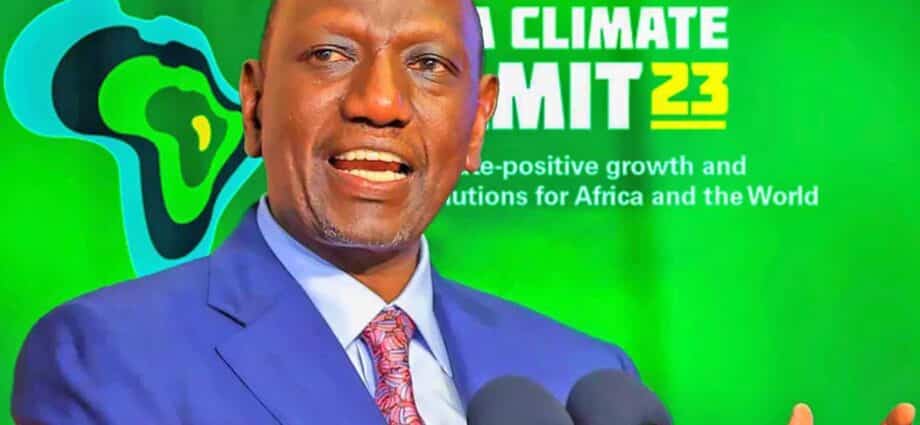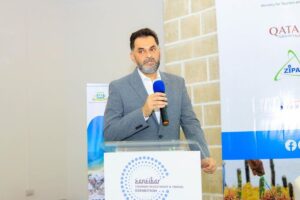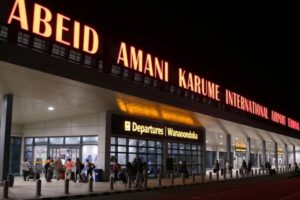The prestigious Financial Times just sprinkled some confetti on President William Ruto’s head. In an article entitled “Kenya president set for landmark US state visit as Russia builds Africa Influence”, it noted Ruto would “meet his US counterpart Joe Biden this month in the first state visit by an African leader in more than 15 years.”
After some positive mentions, it said, “Although Washington has said corruption is a ‘substantial barrier’ to doing business in Kenya, Ruto appears highly regarded by officials in the US. Last week, the House foreign affairs committee put in a formal request to Speaker Mike Johnson to invite Ruto to address a joint session of Congress”.
The story also had Kenyans knocking Ruto for globetrotting while floods and other problems batter Kenyans at home. None of that, though, is about to kneecap the president, who has been on an international roll over the last one and a half years, crafting a role as one of the most influential African leaders on the world stage.
A lot of this stuff is about Kenya being a critical strategic player, an important springboard for the broader West to confront security threats in the region. What, in simple ugali and beans terms does all this mean? We’ll try to demonstrate.
One of the USA’s global rivals is Russia. In one instance, the US is the leading backer of Ukraine, which has been at war with Russia since the latter invaded it in February 2022.
Not too far up the road from Kenya in Sudan, a deadly war broke out in April 2023 between military leader Abdel Fattah al-Burhan, and his former ally Mohamed Hamdan “Hemedti” Dagalo, commander of the powerful militia group Rapid Support Forces (RSF). In March the influential US publication Wall Street Journal reported that Ukrainian special forces were in Sudan to fight RSF rebels, who are backed by Russia’s Wagner mercenary group, and “how the front line in the war between Ukraine and Russia expanded into Africa”.
All this, virtually next door is Kenya, where the US has its largest embassy in Africa, and also the biggest Central Intelligence Agency (CIA) station on the continent.
Recently, Rolling Stone reported that Russian mercenaries were in the Central African Republic (CAR) hunting elusive and abominable Ugandan warlord Joseph Kony, and his Lord’s Resistance Army (LRA). Between 2010 and 2017 the Ugandan army and US Special Forces chased Kony through South Sudan, the Democratic Republic of Congo, and eventually CAR for a considerable period. They didn’t catch him. Now Russia has put its foot in the space it left.
Russia has become crisis-ridden CAR’s leading patron, and with the US military chased out of military led-Niger, and likely Chad, with that whole anti-US/anti-West “coup belt” in Sahel/West Africa, something has happened to its strategic frontline, especially in the middle of Africa – it has dropped to the Congo Basin. It has lost ground, as it were, to Russian and Jihadists. Its East African flank has therefore become more important. And in a period where former big boys like Ethiopia are in crisis, a steady hand to keep the vehicle on the road is needed. Enter Ruto.
The US is also in competition with China, which threw a lot of money, especially on infrastructure, in Africa in the last 20 years, and is loved – more than America is – in most parts of the continent if surveys are to be believed.
America’s big answer to China is the Lobito Corridor, its equivalent of the British colonial Kenya-Uganda Railway. Together with the European Union is building the 1,300-kilometre Lobito railway from Angola, through Zambia’s mine country, to the DRC’s rich mineral fields. Again, it needs a perimeter wall for such a strategic investment.
At the end of April, the American Chamber of Commerce (AmCham) East Africa Business Summit was held in Nairobi. US Secretary of Commerce Gina Raimondo led members of the President’s Advisory Council on Doing Business in Africa and announced a couple of things. US businesses also revealed Africa plans and deals. The statement they released, though not widely covered, was revealing.
Among many, the US Trade and Development Agency (USTDA) will fund a feasibility for a cross-continent fibre backbone connecting the Atlantic and Indian Ocean coasts of Africa. A grant had been provided to Kenyan company CSquared to assess the viability of metro fibre stations in towns along the backbone.
The countries through which the backbone would pass are Kenya, DRC, Tanzania, Uganda, and Zambia.
Baylis Emerging Markets signed an MOU with Semiconductors Technologies Limited (STL) in Kenya for a $250 million fundraising effort to expand existing semiconductor fabrication plant, “introducing chip manufacturing capacity to Africa, de-risking and diversifying the global supply chain”.
CISCO announced the launch of its first Cybersecurity Technology Experience Centre in Africa in Kenya.
Texas-based AST SpaceMobile announced it had begun testing its space-based low Earth orbit satellite to deliver cellular broadband service in Kenya.
It is the company’s first testing in Africa. We are no longer playing banana fibre football in the village square. With all these assets, Kenya has to wear big-boy pants. Like or hate him, it is why Ruto matters.
The author is a journalist, writer and curator of the Wall of Great Africans Twitter@cobbo3















